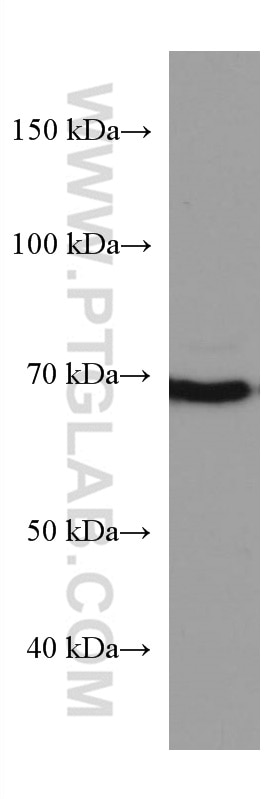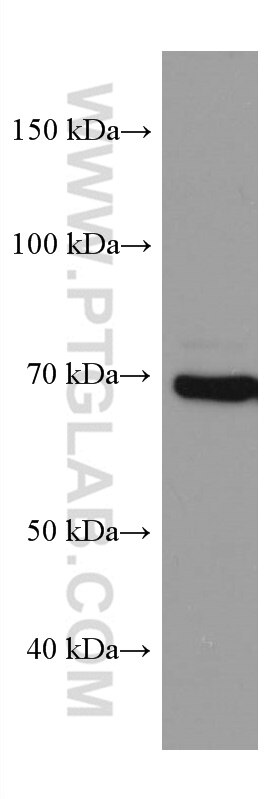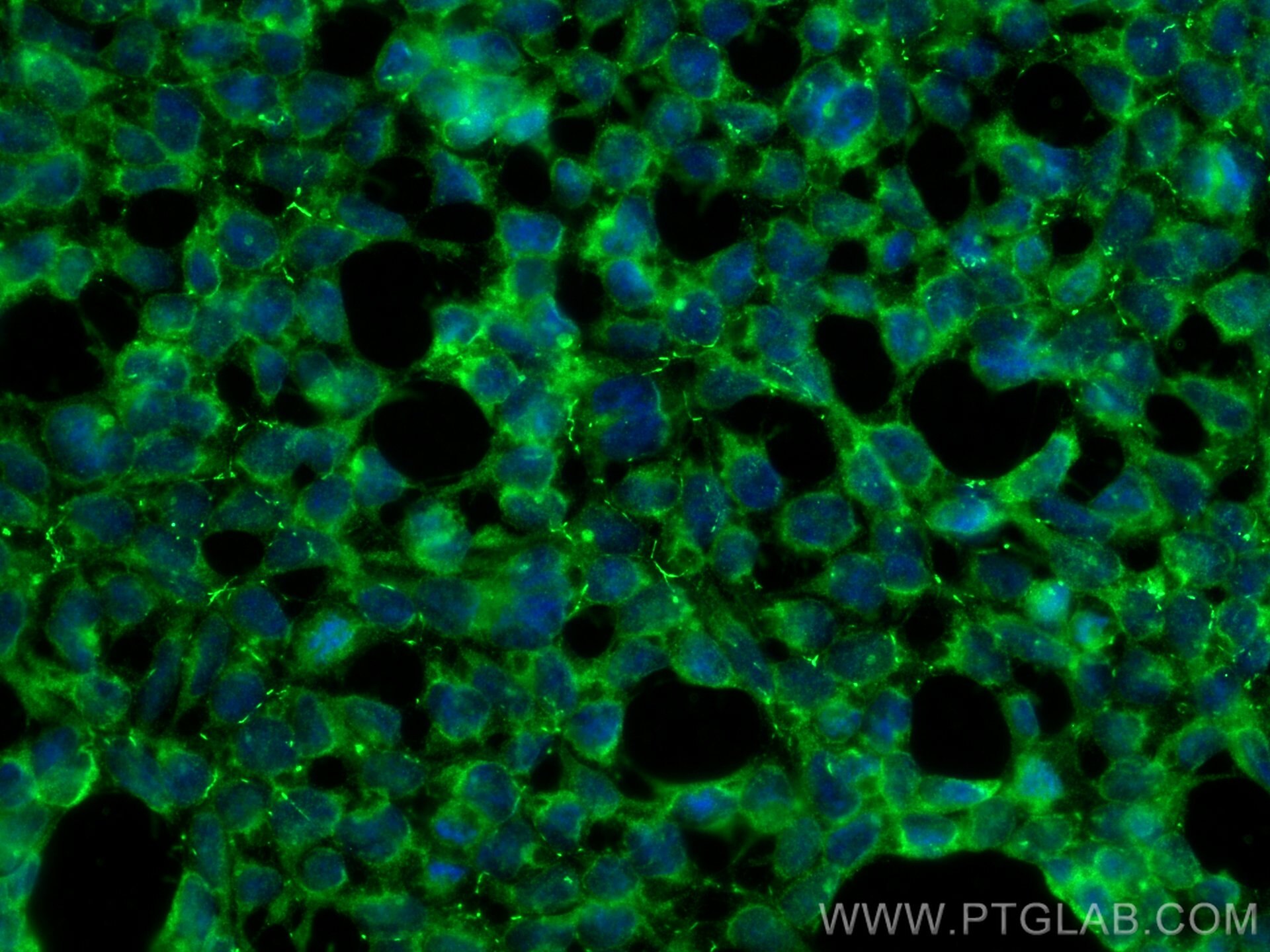Validation Data Gallery
Tested Applications
| Positive WB detected in | HEK-293 cells, K-562 cells |
| Positive IF/ICC detected in | HEK-293 cells |
Recommended dilution
| Application | Dilution |
|---|---|
| Western Blot (WB) | WB : 1:1000-1:4000 |
| Immunofluorescence (IF)/ICC | IF/ICC : 1:400-1:1600 |
| It is recommended that this reagent should be titrated in each testing system to obtain optimal results. | |
| Sample-dependent, Check data in validation data gallery. | |
Product Information
67562-1-Ig targets PAK6 in WB, IF/ICC, ELISA applications and shows reactivity with Human samples.
| Tested Reactivity | Human |
| Host / Isotype | Mouse / IgG1 |
| Class | Monoclonal |
| Type | Antibody |
| Immunogen | PAK6 fusion protein Ag27692 相同性解析による交差性が予測される生物種 |
| Full Name | p21 protein (Cdc42/Rac)-activated kinase 6 |
| Calculated molecular weight | 681 aa, 75 kDa |
| Observed molecular weight | 70-75 kDa |
| GenBank accession number | BC035596 |
| Gene Symbol | PAK6 |
| Gene ID (NCBI) | 56924 |
| RRID | AB_2882776 |
| Conjugate | Unconjugated |
| Form | Liquid |
| Purification Method | Protein A purification |
| UNIPROT ID | Q9NQU5 |
| Storage Buffer | PBS with 0.02% sodium azide and 50% glycerol , pH 7.3 |
| Storage Conditions | Store at -20°C. Aliquoting is unnecessary for -20oC storage. |
Background Information
PAK6(p21-activated kinase 6) is a serine/threonine kinase belonging to the p21-activated kinase (PAK) family. .This protein plays a role in the regulation of gene transcription and may protect cells from apoptosis through phosphorylation of BAD. Northern blot analysis revealed that PAK6 is highly expressed in testis and prostate tissues (PMID:11278661).
Protocols
| Product Specific Protocols | |
|---|---|
| WB protocol for PAK6 antibody 67562-1-Ig | Download protocol |
| IF protocol for PAK6 antibody 67562-1-Ig | Download protocol |
| Standard Protocols | |
|---|---|
| Click here to view our Standard Protocols |


